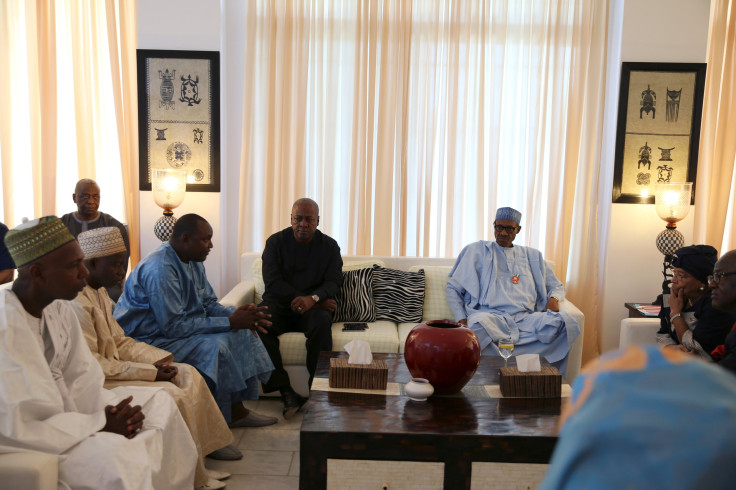Who Is Yahya Jammeh? Africa Reacts After Gambia President Rejects Election Results

African leaders are calling on Gambia's president to accept the nation's election results and step down from office. Yahya Jammeh, who became the president in a coup in 1994 and is known as a repressive leader, has refused to accept his defeat in elections earlier this month.
Nigeria President Muhammadu Buhari joined other world leaders Tuesday on calling on Jammeh to accept his loss to opponent Adama Barrow in the Dec. 1 presidential race. Barrow campaigned on a promise to annul Jammeh's declaration of Gambia as an Islamic Republic, among other policy overhauls in the nation of 1.8 million people.
"We will be asking President Jammeh to respect his country's Constitution, and to maintain the inviolability of the electoral process," Buhari wrote on Twitter.
Jammeh, however, has said there were irregularities in the official results. His party has pledged to challenge the results with the nation's highest court.
Jammeh has previously vowed to rule Gambia for a "billion years."
Gambian security forces took control of the Independent Electoral Commission headquarters Tuesday, giving Jammeh's government control over the original poll records.
"The military came to my office and said I am not to touch anything and told me to leave," said Alieu Momarr Njai, chairman of the Independent Electoral Commission. "I am worried for my safety."
He added: "If it goes to court, we can prove every vote cast. The results are there for everyone to see."
A delegation of West African presidents traveled to the capital Banjul Tuesday to urge Jammeh to step down. The group included Buhari, Nobel peace laureate Ellen Johnson Sirleaf, Sierra Leone's Ernest Bai Koroma and Ghana's John Mahama, who conceded defeat after losing his own election last week.
Jammeh has 60 days to vacate his post after the election. He has survived several attempted coups, including most recently in December 2014, and won four elections.
"I support the commander in chief, whoever it may be. I support the commander in chief Jammeh," Army chief General Ousman Badjie told Reuters Tuesday.
© Copyright IBTimes 2024. All rights reserved.






















